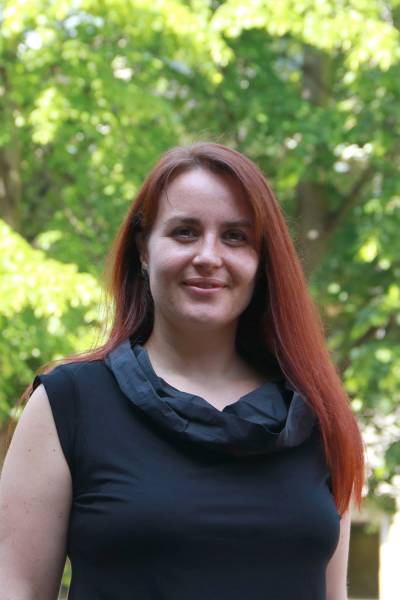Dr Zsófia Demjén is an Associate Professor in Applied Linguistics. She is currently working on a project to better understand the experiences of people who hear voices.
What do you most enjoy about your position and why?
I really enjoy the autonomy, flexibility and intellectual challenge of academic work, as well as the combination of research and teaching. The two are fundamentally complementary: research ensures that teaching content is vivid and up-to-date; while teaching encourages us to make research understandable, and to address the 'so what?' question.
What is the focus of your research and what benefits do you hope your discoveries and/or insights will bring?
Basically, I'm interested in how people use language for different purposes in health and illness-related contexts and situations, because how people say what they say can tell us more than just what they actually say. In this way, we can learn more about how people experience particular illnesses or healthcare services.
“In the long run, this can help in all sorts of ways: e.g. to understand why some interventions or diagnostic tools do or don't work very well; or what causes misunderstandings, shame, etc. in interactions, but also on a broader scale in terms of social attitudes.
From March 2021, I’ll be working on a new £1m ESRC-funded project called ‘Questioning Vaccination Discourse (Quo VaDis): a corpus-based study. It’s a project led by Lancaster University in collaboration with UCL and the University of Leeds, applying the latest techniques for large-scale computer-aided discourse analysis to investigate how the public speaks and writes about vaccinations, e.g. on social media, in UK Parliamentary debates, and in UK media.
“The goal is to arrive at a better understanding of pro- and anti-vaccination views, as well as undecided views, to inform future public health campaigns.
Although the project bid was submitted before COVID-19, we will start by looking at discourses around the Covid-19 vaccine, to better understand how this is being perceived by the public.
What working achievement or initiative are you most proud of?
I am very proud and honoured to be the UCL partner in a new international collaboration, the International Consortium for Communication in Healthcare. We launched the Consortium in September 2020 and our dual focus is on innovative research to understand the role of communication in a wide range of healthcare contexts and, crucially, translating findings to education and practice to improve patient safety and quality of healthcare practice globally. Colleagues at UCL can keep an eye on developments and opportunities related to the consortium by joining the UCL Health Communication Network.
What attracted you to take up your position at IOE?
There is the obvious: IOE's reputation and track-record for excellent research. But more specifically, in my previous job, IOE was always seen as the go-to place when we needed external examiners, or specialists to help design particular parts of the curriculum or to contribute to research projects and papers. I wanted to be a part of the group that others call on.
How has being in London or at UCL in particular benefited you?
It's amazing to be located in Russell Square with the buzz of four universities immediately around you, and several others within a 30-minute walk. My own work draws on disciplines beyond linguistics (psychology, health and well-being) and this makes it so much easier to have conversations with colleagues working in other faculties and institutions.
Last updated 27 July 2023.
 Close
Close


